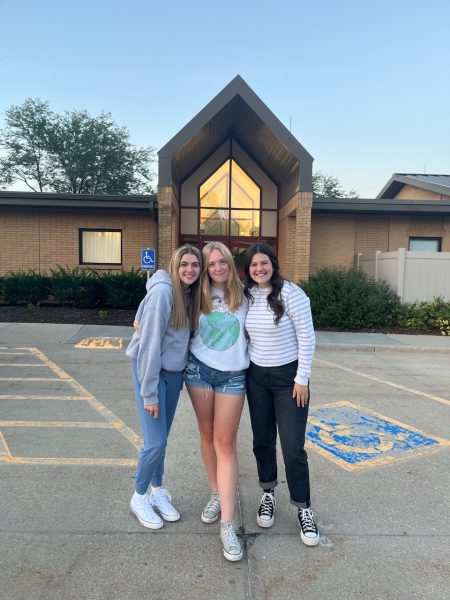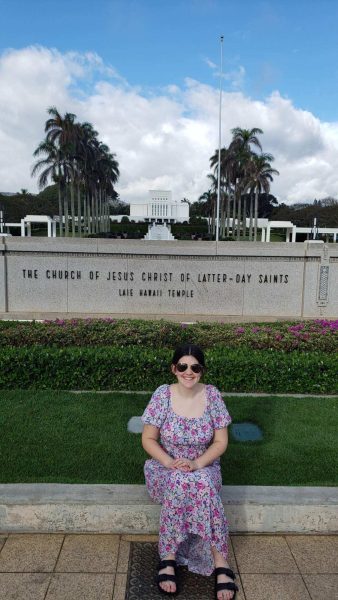
21, 2023. “My religion and beliefs have also just brought me so much stability and joy as it has been a constant positive influence,”Walker said. Photos courtesy of Albanie Walker

has helped me become who I am today,”Walker said. Photos courtesy of Albanie Walker
Just imagine, for a moment, that someone has something so important to them and is a big part of their life, but they cannot share it with anyone for fear of be- ing judged. Such is the reality of many people with less traditional religious beliefs. Certain religions, such as paganism and Mormonism, are not as well understood because of preconceived notions. Past censorship of less traditional religions has caused current members of these religions to face prejudice.
“There are a lot of negative connotations with the words pagan or witchcraft, so we keep our practice fairly close to home,” Bellevue community member Jamie Molitor said.
People are growing more tolerant of opposing views; however, the long history of religious censorship plays a part in considering why it is an issue in modern society. According to Scholarly Com- mons, controversy erupted, from 1997-2007, between religious fundamentalists and J.K. Rowling’s Harry Potter when they claimed it promoted satanic worship, witch- craft, and occultism.
“It is not about believing what another person believes, it is about honoring their right to believe it,” Molitor said, “Especially when you look at the idea that one of America’s founding principles was the ability to practice religion as one wanted and not in the manner the government wanted.”
According to the Encyclopedia of Mormonism, since the publication of the Book of Mormon, people, including Abner Cole, editor of a local newspaper called the Reflector, in 1830, have not only had it censored, but have also published their own anti-Mormon content including books, articles, and pamphlets. Negativity has surrounded the religion since its beginning, and its followers have faced much opposition and persecution throughout its history.
“I have just witnessed students being judged or looked down upon because of their particular beliefs,” World Religions instructor Laura Heath said.
In the U.S. , the growing “can- cel culture” has made it easier to censor others. According to Pew
Research, 38% of Americans believe “cancel culture” is likely to punish people, even those that do not deserve it.
“Religion today, I think it is really important to not only talk about, you can talk about the religion, but really, the religion is also based off of the people in the culture in that society,” Heath said. “I like to focus more on the people of the religion, rather than the beliefs.”
Many people turn to religion to help others and want their lives to have an impact on the world. Several people need something that helps them get through difficult times and for many it is religion. Junior Avery Walker finds comfort in being a member of The Church of Jesus Christ of Latter-day Saints.
“My religion helps bring me comfort in times of need,” Walker said. “It is something that has re- ally built my family and how we treat each other.”
Recently, there is a growing rate of anti-semitism in the U.S. due to the Israel-Hamas War. Several Jews have reported feeling unsafe, and according to the Anti Defamation League, anti-Jewish tropes commonly reference Jewish conspiracy theories that have been proven to lead to hostility and violence. However, this is just one example.
“I think we need to learn to embrace our differences,” Molitor said. “See them as individual colors in a tapestry. Alone they are bland, but together beautiful.”


